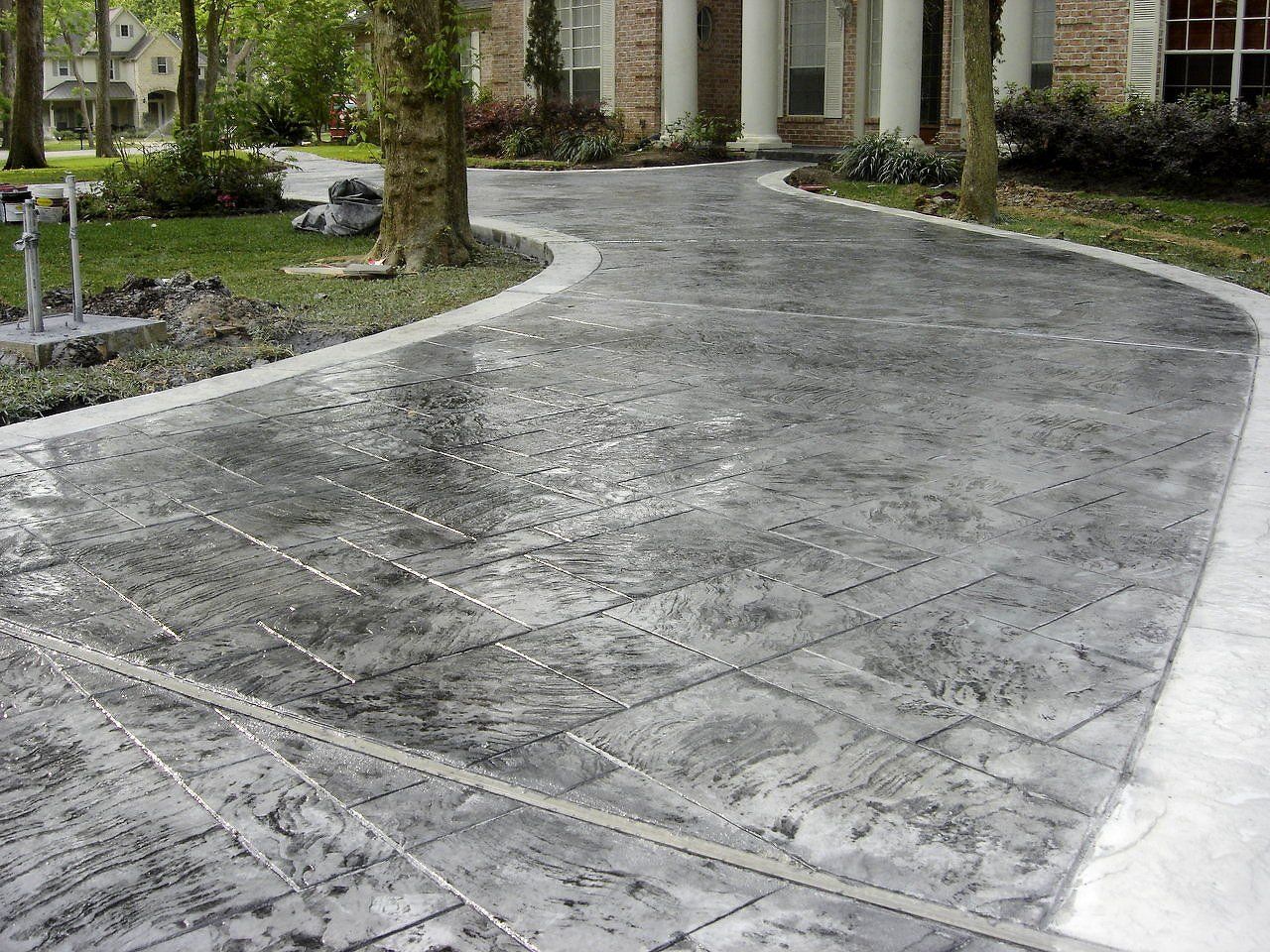Tips for Putting in a Concrete Driveway - Knoxville Concrete Contractors Co
Tips for Putting in a Concrete Driveway Knoxville Concrete Contractors Co
Concrete driveways are often a preferred option for homeowners. They can be created in any dimensions you'd like. Concrete driveways can be durable and easily maintained. They also have more capacity to bear load and have better heat reaction. They also improve curb appeal, and is an eco-friendly option. Its robustness makes it a great choice for homeowners. Concrete driveways are durable enough to withstand any vehicle due to of their durability and capacity for carrying loads.
The gravel is an alternative for driveways. It is a natural product which offers a superior substitute for concrete. This versatile material is easy to work with and is an ideal choice for homeowners. Crushed rock along with rebar mesh and fabric underlayment are all excellent options for driveways. These materials can be compacted using vibratory plate compactors or Rammers. When installing a driveway made of gravel , ensure that you follow their instructions regarding the correct measurement and dimensions.
when installing driveways constructed of concrete the base needs to be firm and uniform. A base consisting of 6" 12" of crushed rock or gravel is ideal to ensure drainage and a greater capacity for load. Subgrades and bases should are free of organic material. Concrete driveways may be damaged by subgrade pockets , which are soft. Subgrade and base areas must slope away form buildings and other structures in order to allow proper drainage. Proper drainage requires a pitch of 1/4 in for each foot.
The driveways made of concrete are long-lasting and low maintenance But the edges are vulnerable to stains from oil and other materials. They are floated in order to provide maximal protection, however they are extremely susceptible to leaks of water. Follow the guidelines of the manufacturer when deciding to put in a driveway made of concrete. It's affordable and easy. If you're thinking of installing an entirely new driveway, make sure to talk to an experienced contractor. You'll be satisfied with the final result as well as the long-term durability of your new concrete driveway.
In order to prevent water from flowing further down the line, it's important to ensure that edge of driveways made from concrete float. To ensure your safety, the edges of driveways should be at least one quarter the thickness of an inches. Many homeowners opt for an untreated aggregate driveway. It is beautiful and long-lasting. It doesn't require any maintenance. Asphalt-paved driveways last for between 30 and 30 years. In this case, it is advisable to take into consideration this option.
It is essential to ensure safety. While it doesn't need any special maintenance the concrete can show stains with time. Concrete driveways don't come with an outlet for the rainwater to drain. An unclean driveway will also give it a unsightly appearance. This isn't simply a problem with regards to safety however. If the amount of water has accumulated is excessively large that can result in flooding.
Floating along the sides of concrete drives can be a wonderful idea. It will stop water from getting in and makes the drive safer and smooth. Concrete driveways without decorative finishings should be sealed to prevent cracks. A poor installation of a concrete driveway could result in expensive repairs. In every situation it is essential to follow manufacturer's recommendations and plan ahead for any damage.
The floating of roadsides' edges are vital for the durability. The edges must be clean and a durable sealant is required to stop water from bleeding and stop it from ruining it's concrete substrate. The edges that are floated in a concrete driveway must be sealed to stop it from discoloring in time. To prevent your concrete driveway from turning discolored over time, the top layer of concrete should be sealed even if concrete isn't waterproof. To prevent the elastomer from coming into contact with concrete surfaces, it is recommended to apply an asphalt-based coating or a sealing agent based on polymers.
Concrete can be used for driveways without needing decorative finishes. Although it is not necessary to apply a decorative surface on concrete driveways, it can improve the aesthetics of your home. Concrete is sturdy and will stand up to the most extreme weather conditions. No matter whether you pick a stylish or plain concrete surface it's a great choice for your driveway made of concrete. The price is extremely affordable should you want an upgrade.
Before you install your concrete driveway, it's crucial to establish the type of material that it's made of. The thickness of your driveway is affected by many factors, such as the amount of weight you plan to place on it. It also depends on the soil's qualities and your budget. If you're contemplating installing an entirely new driveway and need some advice, here are some to consider. Here are some useful suggestions to help you pick which material is best for you. Once you've done this the job, you'll need to apply an epoxy sealer to your concrete.
If you're planning to put heavy loads on your driveway made of concrete it's a good idea that you float the edges. This prevents water from leaking from the driveway. It makes it easier for cracks to be found and guards your driveway against injuries like potholes. You can choose to not use Rebar for slabs less than 5 inches thick. Rebar will prevent bleed-water by not allowing the bleeding water to evaporate.
If you're planning to install your driveway in concrete ensure that the concrete has not compromised in any way. Concrete driveways that are durable are not susceptible to cracking. Concrete slabs are constructed from cement, which is a natural substance and is able to withstand pressures up to a certain point. They can also hold tons of weight. It is recommended to seal it to prevent the water from vaporizing. After it has been sealed that the concrete will be able to stand against the pressure of the vehicle.
The building of a concrete driveway should be handled by experts who are knowledgeable about the process. You should take into account the previous work's quality and the reviews from clients who have worked previously with us. Once the concrete driveway been completed, it will look even and smooth. A concrete driveway properly constructed will enhance it's value home and increase your confidence driving. It also makes it easy to park your car in your garage.
Concrete driveways must have joints that can accommodate seasons of expansion or contraction. Rebar is a crucial structural element of a concrete driveway. Rebar needs to be laid out on a level area that is flat. This will prevent the driveway from falling into the form of a pit. Additionally it will be easier to maintain your concrete driveway if you use sealer. You must also consider the material you choose for the finalization of your driveway.
The thickness of the concrete driveway depends on its intended use, area, and your budget. The majority of driveways used for residential or commercial purposes range between four" in thickness and six inches in thickness and highways range from approximately 11" and 12 inches. If you decide to use a heavier or less apex foundation for the driveway you want to construct, be aware that it's more costly than it ought to be. Additionally, you must consider the shape of your driveway.
If you're considering installing any concrete drive, it's important to take care of preparing the area so that you don't run into any potential water issues. Clear any vegetation and make sure that the soil is firm. Then, build Wood forms all around the perimeter of the driveway to make sure the driveway is level. In the next step, fill up the gravel base with class-5 gravel. The gravel should measure four inches in thickness and compacted graded. Then, add reinforcements including rebar, made of metallic or a steel wire grid.

